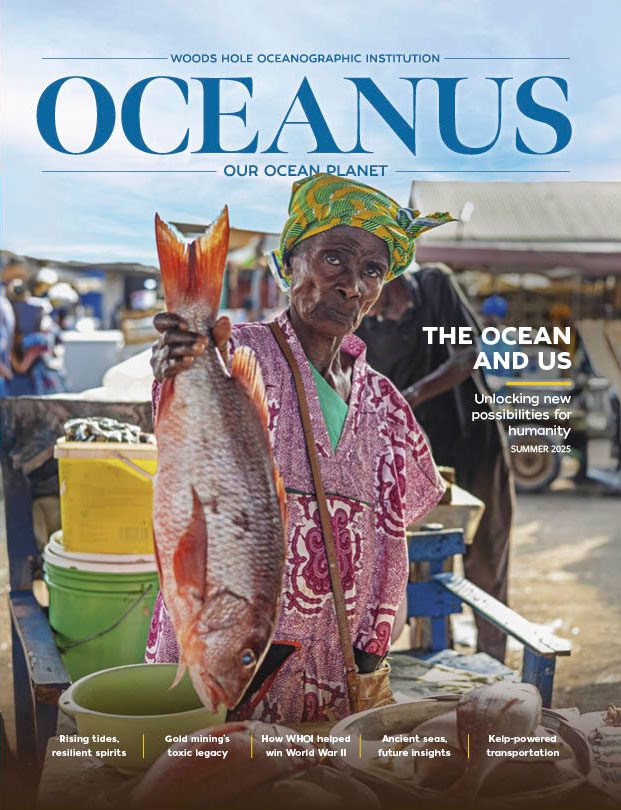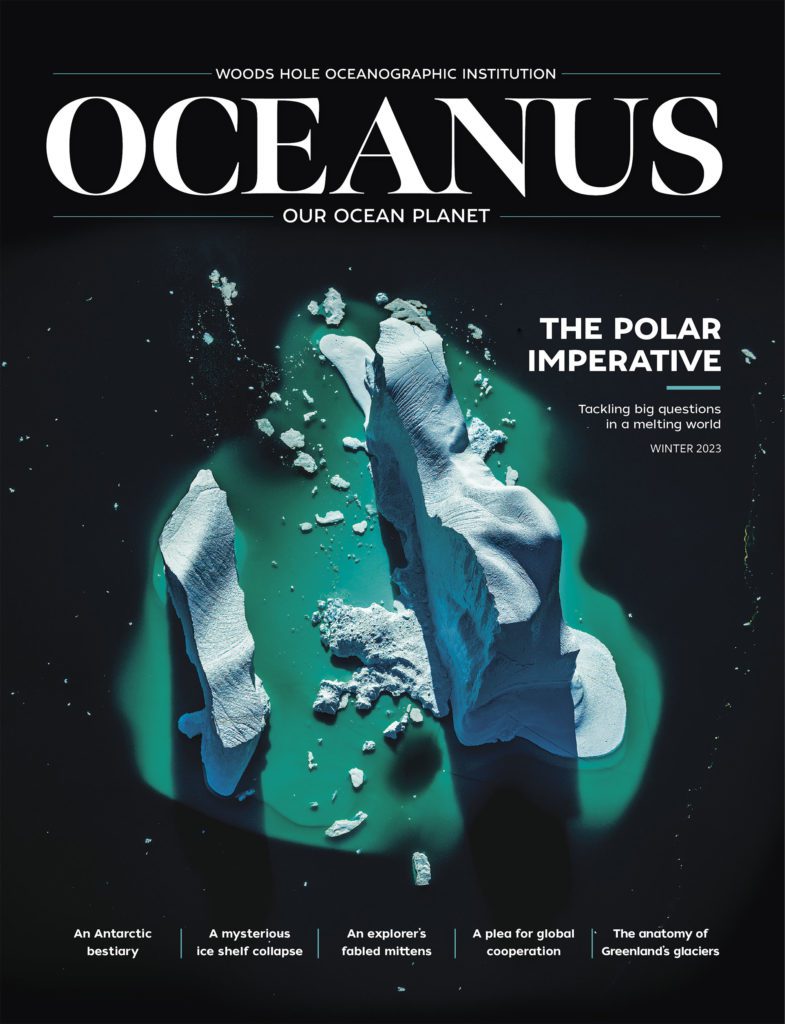Climate Change
Baker Administration Pushes Legislature For Climate Resiliency Funds
Murray said buoys, research ships and other coastal monitoring systems would be critical to predicting weather patterns and preparing for impacts on food supplies and local economies built around fishing.
Review evaluates the evidence for an intensifying Indian Ocean water cycle
The paper brings together various scientific expertise, tools, and data sources to address key questions regarding climate change in the Indian Ocean, says Ummenhofer, associate scientist in the Physical Oceanography Department at the Woods Hole Oceanographic Institution (WHOI).
Review evaluates the evidence for an intensifying Indian Ocean water cycle
The paper brings together various scientific expertise, tools, and data sources to address key questions regarding climate change in the Indian Ocean, says Ummenhofer, associate scientist in the Physical Oceanography Department at the Woods Hole Oceanographic Institution (WHOI).
To Understand How Warming is Driving Harmful Algal Blooms, Look to Regional Patterns, Not Global Trends
Accounts of harmful algal growths have increased over time. So has monitoring, however, making it difficult to tell whether the rise in observations is simply because there is greater awareness of their occurence or if it truly represents a growing ocean threat.
Study finds six degrees celsius cooling on land during the last ice age
The study bolsters the method of analyzing noble gases to reconstruct paleo temperatures and provides more confidence in climate models, according to the authors.
Consortium For Combatting Global Climate Change
Designed to act as an engine for continuous innovation and powered by some of the world’s leading minds and businesses, the OCIA consortium is open to participation by a wide range of leading organisations across business, academia and non-profits that recognise the inextricable links between ocean and climate and wish to have a positive impact on the global climate crisis.
ADI teams on ocean innovation accelerator
The Ocean and Climate Innovation Accelerator (OCIA) consortium is funded with $3m over three years from ADI to develop new technologies to monitor climate change.
WHOI partnership means $3 million to investigate how climate change affects oceans
Funded by a $3 million multiyear grant from Analog Devices Inc. of Wilmington, the program will support research investigating climate change impacts on the ocean.
How to Talk to Kids About Climate Change
Luckily, there are a lot of experts who are parents themselves who can help. Here are some of their tips.
Cape Cod Climate Research Station Abandoned Because It’s About to Fall Into the Sea
Warmer World Needs More Protected Habitat
With climate change soon to be the main threat to biodiversity, protected habitat will be a higher priority than ever to give wildlife a chance.
We’ve Known For Years Global Warming Could Lead To A New Ice Age. Why Is No One Doing Anything?
The possibility that climate change could flip and, in just a matter of years, plunge part of the world into a new ice age is something that has occasionally made its way into the media.
Changing climate: In-depth coverage of our changing climate and environmental issues
What’s In That Water? ‘Geochemical Santa Claus’ Offers New Data To Climate Modelers
For many years scientists thought that groundwater — which hides in underground aquifers and slowly makes it way out to sea — wasn’t adding much to ocean chemistry.
From north to south pole, climate scientists grapple with pandemic disruptions
Carin Ashjian, a biological oceanographer at WHOI who studies the impact of climate on ecology, was also on the ship then and remembers that “there were a lot of mixed feelings” when news of the pandemic hit them in March. She described how they were both worried about the safety of people back home, while feeling relief that they were protected from the virus by their geographic isolation.
Science is the way forward
By definition, science seeks to avoid bias, remain independent, refute falsehoods, and seek answers based on evidence, reason, and consensus. An editorial writen by Peter de Menocal and Richard W. Murray.
Breaking the ice on melting and freezing
“Ice deforms as it melts,” said WHOI physical oceanographer Claudia Cenedese, who has worked with Hester on the project. “It makes these very weird shapes, especially on the bottom, like the way the wind shapes a mountain on a longer time scale.”
Ancient storms could help predict future shifts in tropical cyclone hotspots
To get a better sense of how climate change might alter the patterns of major ocean storms, shifting the parameters of tropical cyclone hotspots, scientists reconstructed 3,000-years of storm history in the Marshall Islands.
A Marine Heatwave Is Warming Up The Ocean Along The East Coast
Here & Now‘s Jeremy Hobson talks to Glen Gawarkiewicz, an oceanographer at Woods Hole Oceanographic Institution, about why the ocean temperatures are warming as well as what it means for ocean life and weather patterns.
Hot ocean waters along East Coast are drawing in ‘weird’ fish and supercharging hurricane season
Warm waters are a major concern with Hurricane Isaias forecast to ride up the Eastern Seaboard. Glen Gawarkiewicz, an oceanographer at WHOI, describes Gulf Stream fish being caught off Block Island, R.I., in January 2017 and increases in the “rate and amount” of species like mahi-mahi passing through.
Wetter climate to trigger global warming feedback loop in the tropics
As the tropics get wetter, as many climate models predict, soils are likely to experience greater rates of respiration and decomposition, limiting the carbon storage abilities of tropical soils and intensifying global warming.
Snapping Shrimp Pump Up the Volume in Warmer Water
As the ocean warms because of climate change, the louder din could mask other marine animals’ calls used to navigate, forage, and find mates.
Shrimp May Make Ocean Louder in Warming Climate
Small snapping shrimp make big noises and scientists from the Woods Hole Oceanographic Institution say the tiny crustaceans could make the ocean louder as it warms. Here’s why.
March of the penguins
If current warming trends continue, emperor penguins will be marching toward an 86 per cent population decline by the end of the century, at which point, “it is very unlikely for them to bounce back,” says study author Stephanie Jenouvrier, a seabird ecologist from Woods Hole Oceanographic Institution.



